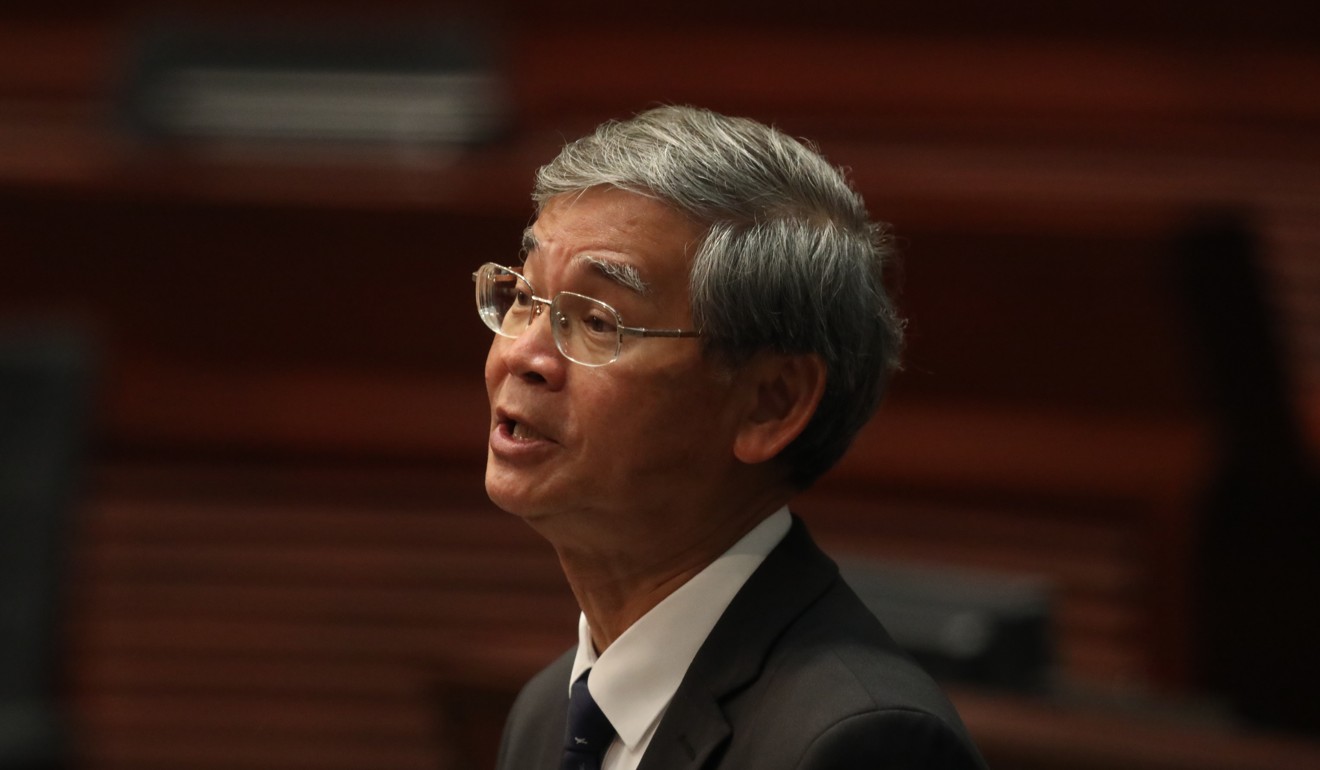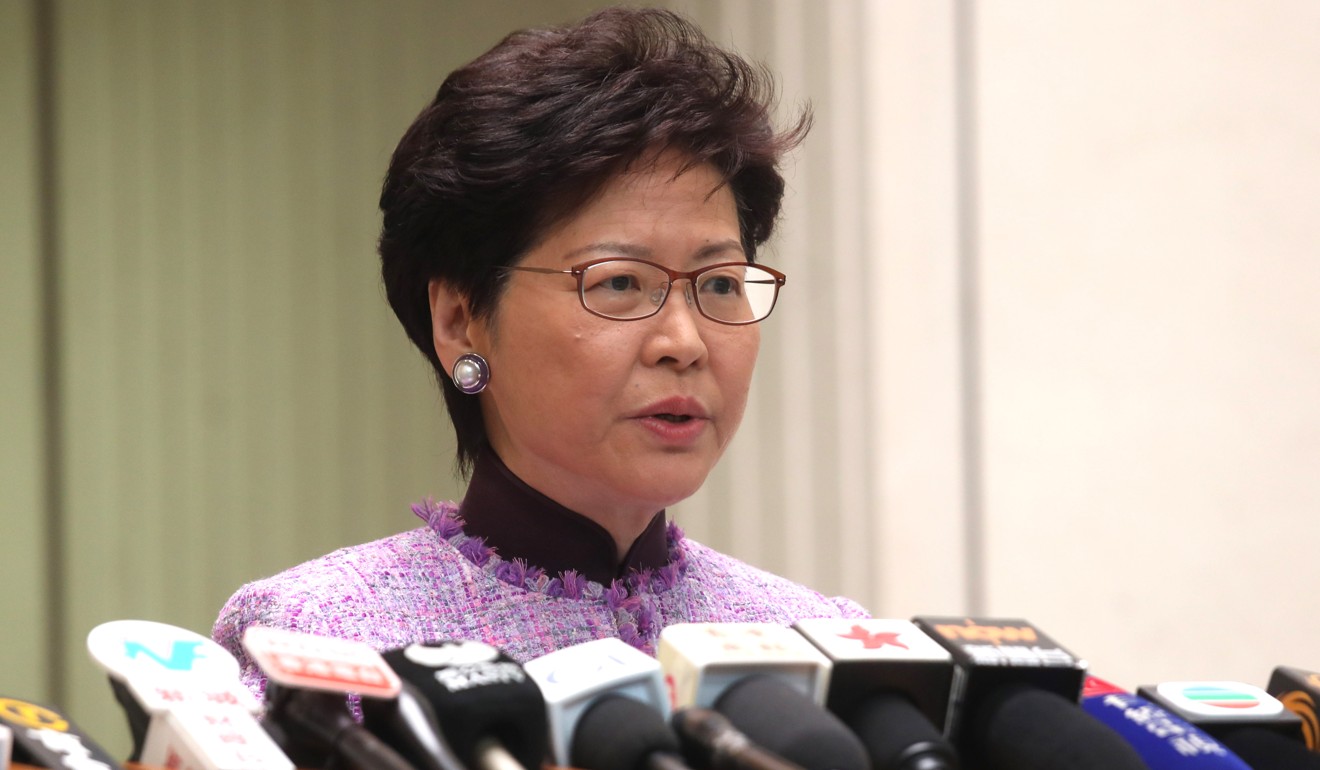
Hong Kong lawmakers united against government’s ‘heartless’ decision to raise age threshold for elderly welfare payments
- Welfare secretary Law Chi-kwong stands firm but suggests possible measures to ease process for those most affected
- Government again accused of being out of touch, days after city’s leader Carrie Lam had defended policy and drawn criticism
Lawmakers across Hong Kong’s political divide have snubbed the welfare chief’s offer of additional support for senior citizens to compensate them for the loss of allowances they will no longer be entitled to under a controversial change in the age threshold from next month.
In a rare show of unity as the controversy intensified on Monday, legislators accused the government of being heartless and demanded a delay, but Secretary for Labour and Welfare Dr Law Chi-kwong stood firm, insisting it was almost impossible to revise a policy that was decided two years ago.
“This would require a decision to change the policy,” he said. “The chances of that are quite low.”
"The definition of elderly will need to be changed sooner or later. When people are all 120 years old, being 60 years old is just reaching mid-middle-aged,” Law said on a Commercial Radio programme.
Facing an escalating public backlash, including a legal challenge, Law promised to include measures to make it easier for applicants to qualify for regular welfare payments by raising the mark for disregarded earnings.
Another proposal he raised was to streamline the application procedure so those in poor health could get the equivalent of elderly welfare payments under the Comprehensive Social Security Allowance (CSSA) scheme.

Disregarded earnings refer to income from employment that is not taken into account when assessing the amount payable to a CSSA recipient. The maximum monthly amount is currently set at HK$2,500.
Public backlash unlikely to stop social welfare change, says Lam adviser
“That was set back in 2003, almost 16 years ago. So, it is definitely time to review,” Law said. He did not elaborate on adjustments, but promised they would be implemented by February.
But he poured cold water on suggestions the government’s Community Care Fund could be used to subsidise those affected. The fund was set up to ease the burden on the needy who fall out of social safety nets.
Lee Tai-shing, spokesman of concern group CSSA Rights Defence, said Law was shifting the narrative.
Protesters decry government’s plan to raise CSSA elderly payment threshold to 65
“Raising the amount of disregarded earnings only helps those with relatively high income to have less deducted from their CSSA payments,” he said.
“There will only be a small number of elderly people benefiting from that and unemployed CSSA recipients in the 60-64 age bracket will still be punished.”
Approved by lawmakers last year, the extended age threshold for the elderly CSSA scheme is due to take effect from February.
The decision sparked controversy last week, with lawmakers calling on Chief Executive Carrie Lam Cheng Yuet-ngor to revoke it, warning that thousands of senior citizens would suffer otherwise.

People aged 60 to 64 will only be able to get normal adult rates for CSSA payments, which are about 30 per cent lower, or HK$1,030 less, than what they currently receive every month.
Law’s suggestions failed to please either the opposition pan-democrats or the pro-establishment camp.
In a Legco panel meeting on Monday, Wilson Or Chong-shing of the city’s largest pro-establishment party, the Democratic Alliance for the Betterment and Progress of Hong Kong, said: “It is extremely disgraceful and heartless for a government, which is sitting on reserves worth trillions, to curtail welfare for the elderly. I believe Law and his team really do not know how ordinary people lead their lives.”
Michael Luk Chung-hung, of the pro-Beijing Federation of Trade Unions, said the government had been “sneaky” to avoid consulting Legco first on the change, which was pushed through as part of the budget last year.
Shiu Ka-chun, who represents the social welfare constituency, is moving a motion to urge the government to review the entire CSSA system on Wednesday.
Pan-democrats Au Nok-hin and Fernando Cheung Chiu-hung raised amendments to the motion demanding the government shelve the age threshold change.
Both the DAB and FTU said they would back Shiu’s motion. The DAB’s Leung Che-cheung, who also raised his own amendments to the motion, said he would make it clear in his speech that the party wanted a delay.
“We will look in detail at the wording of the amendments [raised by Au and Cheung], but we will support any amendments in line with public opinion,” Leung said.
‘I’m over 60 and work 10 hours a day’: Lam defends raising welfare age limit
Separately, an unemployed homeless man, who turns 60 in April, applied for legal aid to challenge the policy through a judicial review bid. The former driver said he felt disappointed and frustrated to learn of the change.
Richard Tsoi Yiu-cheong of the Society for Community Organisation, who backed Lai’s legal challenge, said such a change to a fundamental welfare policy should be scrutinised by the courts to see whether the rights of the underprivileged were being infringed upon.
If the legal aid application was successful, Tsoi said, Lai would file a judicial review application immediately and consult legal advice on the possibility of seeking an interim injunction to suspend the policy change – as long as it was before it came into effect on February 1.
Additional reporting by Sum Lok-kei and Peace Chiu


